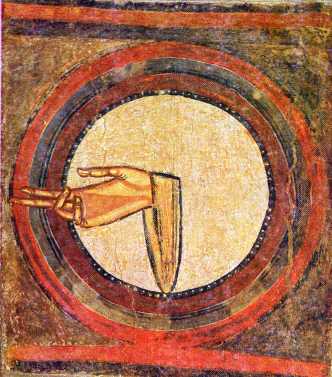 | |
|
I was studying Chapter 1 of Gospel Principles, "Our Heavenly Father," in particular a section on the nature of God. This section concludes with a simple but deep question (p. 6):
Why is it important for us to understand the nature of God?
It is fashionable to be quite indistinct about the nature of God, to leave it all to generalities like "God is love" (which is true, but which begs the question, 'how is that so?'). We live in an age that all but revels in its ignorance about matters religious and theological. As we slowly come to realize that we live in a multicultural world, it is most stylish to deal with our religious differences by glossing over them, ignoring them, being almost wilfully ignorant of the specifics of our individual faiths (let alone anyone else's). (Those interested in checking on these claims are invited to read Stephen Prothero's Religious Literacy, an excellent book for all.)
In this context, the Latter-day Saint faith seems positively old-fashioned in its insistence on specific details regarding the nature of God. We teach about the physical nature of God; the Father and the Son as separate beings; the 'mission statement' of God being to bring about our immortality and eternal life, that is, to make each of us a god--each doctrine, a positive scandal to the dominant churches of Christianity. But its not just that the details of LDS belief about God's nature are controversial; the mere fact that there are details at all seems so out of touch with the spirit of the age.
Yet this is just another instance where the spirit of the age can be seen for the ephemeral, passing fancy that it is.
Next to that question in the Gospel Principles manual--"Why is it important for us to understand the nature of God?"--I found a note that I wrote two or three years ago:
- In understanding God's
nature, we understand what our own perfected nature is.
- We must understand the nature of the One whom we worship in order to worship God satisfactorily.
So, yes, it is important to know specific things about God. Another book by Stephen Prothero, God Is Not One, describes different ideas about God in the major religions of the world. As it happens, the Latter-day Saints have very specific and highly distinctive claims about the nature of God the Father, Jesus, and the Godhead--and the LDS scriptures describe a process whereby a person can know whether these claims are true (see, in the Book of Mormon, Moroni 10:3-5). It behooves each person to find out for herself or himself whether the LDS claims about God are true.
- - -
Feel free to leave
your questions about LDS beliefs, practices, or history on the “Your Questions”
page, through the link in the upper-right-hand corner of this page.
I invite you to become a “follower” of this blog through the
box in the upper-right-hand corner of this page, to be informed of future
posts.
I discuss the growth of the Church of Jesus Christ in my
book, The Rise of the Mormons, published by Seventh Street Books.
(Described here, available here.)
Mark Koltko-Rivera on Twitter: @MarkKoltkoRiver .
Visit the “Mark Koltko-Rivera, Writer” page on Facebook.
Visit the “Mark Koltko-Rivera, Writer” page on Facebook.
(Copyright 2013 Mark E. Koltko-Rivera. All Rights
Reserved. Permission is hereby granted to post the contents of this post in
non-commercial contexts, with attribution to the original author and blog.)
